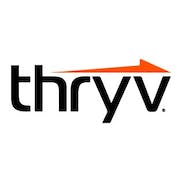Looking for the best reputation management software? Our buyers guide outlines some key considerations to help you make an informed decision.
Maintaining a positive online reputation is imperative for businesses of all sizes. A single negative review or a critical comment can tarnish the image that you have worked so hard to build. That's where reputation management software comes in, helping businesses monitor and manage their online reputation by providing real-time insights into what customers are saying about them across various online platforms. Whether you're a small business just starting out or a large enterprise dealing with a crisis, this solution is a must-have tool in your arsenal. In this guide, we'll take a closer look at how this system works, and what factors to consider when selecting the right one for your business.
What is reputation management software?
This is a powerful tool designed to help companies manage their online reputation, monitor their brand image, and improve their public image in the eyes of potential customers.
- One of its most common use cases is to monitor online reviews related to the company’s products and services. This includes reviews on popular sites like Yelp and Google My Business. The software analyzes the reviews to identify the most commonly mentioned topics, helping companies understand areas where they can improve their offerings to better meet the needs of their customers.
- Another use case involves monitoring social media platforms to identify negative comments and feedback surrounding the company or brand. This helps companies quickly identify any issues with their products or services and allows them to respond in a timely and appropriate manner.
- Moreover, reputation management technology helps companies track and measure their online reputation metrics using data analytics and sentiment analysis. This enables the company to understand their online reputation, track changes over time, and make data-driven decisions to improve their brand image.
This essential app is used by a variety of companies, including those that operate in highly competitive industries, businesses with a global customer base, and those with a strong online presence. It is particularly useful for businesses that rely heavily on customer reviews and feedback to build trust and credibility with their target audience. Research has shown that consumers highly value a company's reputation, with 62% stating it is very important when considering their products.
What are the benefits of reputation management technology?
Here are some of the main benefits of using this application:
- Simplifies reputation management: It can streamline multiple processes, including social media management, online review monitoring, and sentiment analysis. This type of software can provide you with all the information you need to manage your online reputation in one place.
- Improves online ratings and reviews: The system can help businesses gather online reviews, manage them in one place, and automate responses, resulting in more positive ratings and reviews. Consequently, the business can improve its brand image and customer trust.
- Enhances customer engagement: It enables businesses to respond to comments, reviews, and other feedback in real-time, demonstrating commitment towards customers in their continuous efforts to provide excellent service.
- Gains insights into customers: A reputation management tool can help businesses identify customer needs and expectations by analyzing customer sentiments and feedback. Therefore, businesses can design realistic customer-centric strategies aligning with branding that reflects better customer satisfaction in the long run.
- Saves time: With all the reputation management activities happening in one place, businesses benefit from time-saving including drafting a quick response while managing multiple review platforms altogether.
10 key features of reputation management software
Here are the 10 key features that are commonly found in a reputation management platform:
1. Brand monitoring:
This feature allows businesses to monitor online mentions of their brand, products, or services in real-time, enabling them to quickly respond to any negative feedback and capitalize on positive feedback.
2. Review management:
This allows companies to manage their reviews from various online platforms such as Yelp, Google My Business, and Facebook.
3. Social media management:
This tool enables businesses to manage their social media presence effectively, providing them with analytics on engagement levels, followers, content publishing, and audience demographics. Around 88% of small businesses actively monitor their online reputation with social media management tools.
4. Automated reporting:
Reports are automatically generated using data collected from various online sources, providing businesses with insights on their online reputation and customer sentiment.
5. Sentiment analysis:
This function enables businesses to analyze their customers' sentiments by tracking customer reviews, surveys, and social media mentions.
6. Competitor analysis:
It provides businesses with insights on their competitors' online reputation, allowing them to compare their reputation against competition.
7. Reputation repair:
This feature allows companies to identify and repair damaged reputation by enabling them to respond to negative feedback, follow-up with dissatisfied customers, and address their concerns.
8. SEO analysis:
A reputation management program also offers businesses with insights on how to optimize their online presence for search engines, helping them to improve their online visibility.
9. Customer engagement:
It allows businesses to engage with their customers through various channels such as email, social media, and live chat.
10. Brand analytics:
It also provides businesses with analytics and insights on their brand's online presence, empowering them to make data-driven decisions that improve their online reputation.
Things to consider when adopting a reputation management system
Reputation management has become a crucial aspect for businesses looking to establish and maintain their brand image. With the rise of social media and online review platforms, word-of-mouth advertising can either make or break a business. In this regard, reputation management apps plays a vital role in monitoring and controlling a business's online reputation. Here are some factors businesses should consider before purchasing this tool:
1. Features:
When selecting a reputation management software, it's important to consider the key features it offers. Features such as review management, sentiment analysis, and social media monitoring can help businesses stay on top of their online reputation.
2. Integration:
The ability to integrate with other tools such as CRM or helpdesk systems is essential for businesses that want to streamline their workflow. Choosing one that easily integrates with your existing systems will make it easier to manage your online reputation.
3. Customizability:
Every business has unique requirements for reputation management. Customizability is therefore important in ensuring the solution is tailored to your business needs. Look for one that allows customization of features such as notifications, alerts, and reporting.
4. User-friendliness:
A reputation management package can be complex and overwhelming for some users. Therefore, it's important to select one that is user-friendly and easy to navigate. The platform should have a clear and intuitive dashboard and should not require extensive training.
5. Budget:
A reputation tool comes in different sizes and shapes, and the pricing also varies. It's essential to choose one that is within your budget and offers the features you need for your business.
6. Reputation of the software provider:
Just like with any other service provider, it's important to consider the reputation of the provider. Look for suppliers with a good reputation and a track record of delivering quality services.
Emerging trends shaping the reputation management industry
As we head further into 2024, rapid advancements in technology and the rise in online communication mean that businesses must pay close attention to their online reputation. Keeping up with the latest trends is essential. There are several new trends this year that are set to transform the industry and keep businesses ahead of the curve.
- Firstly, reputation management software will focus on integrating with social media platforms, allowing businesses to manage their online presence across multiple channels. Secondly, the technology will continue to create personalized user experiences, leveraging the latest technologies to tailor content based on individual user behavior.
- Finally, reputation management technology will begin to incorporate artificial intelligence to analyze data and make real-time adjustments to campaigns.
As we move further into the future, the integration of reputation management software with emerging technologies will provide businesses with new and exciting ways to engage with their customers and maintain a positive online reputation.
Conclusion
In conclusion, investing in this powerful tool reputation management software is no longer optional but a necessity for businesses aiming to thrive. It helps businesses protect their brand, attract new customers, and retain existing ones by effectively managing and leveraging online reviews and customer feedback. By automating processes, businesses can focus on strategic growth rather than being occupied with remedial damage control.






